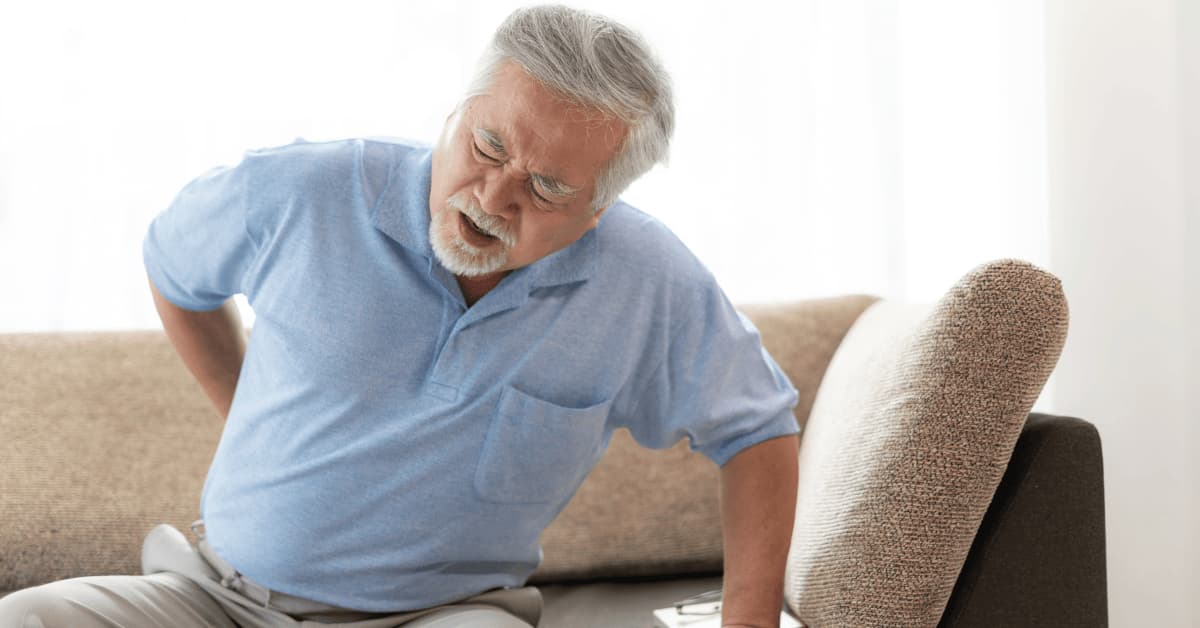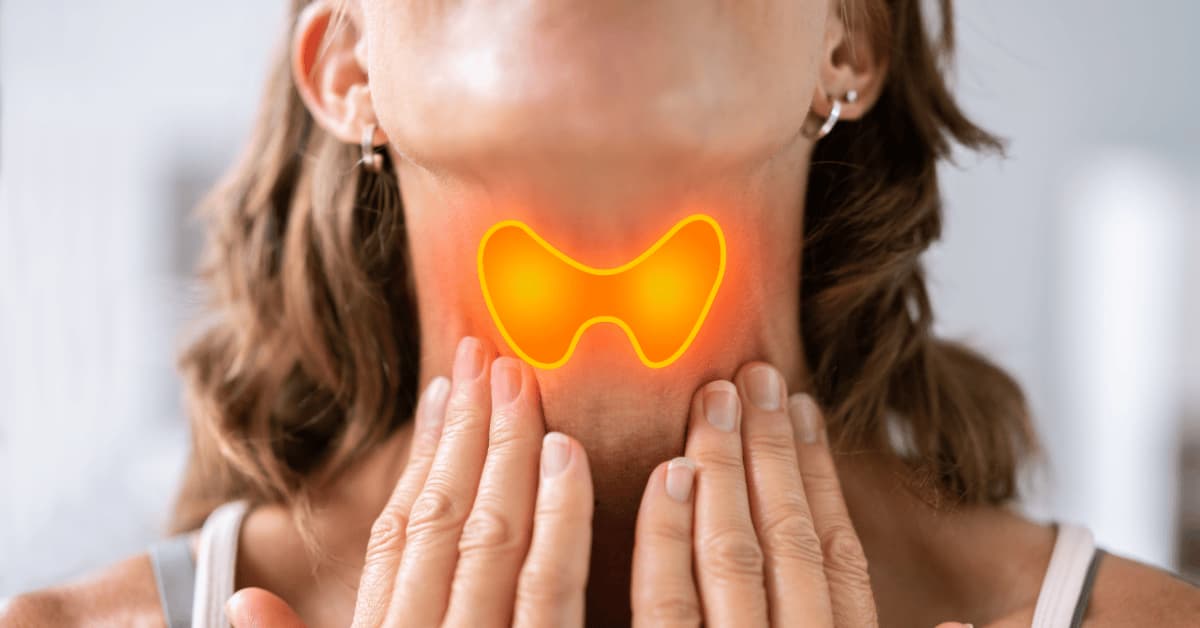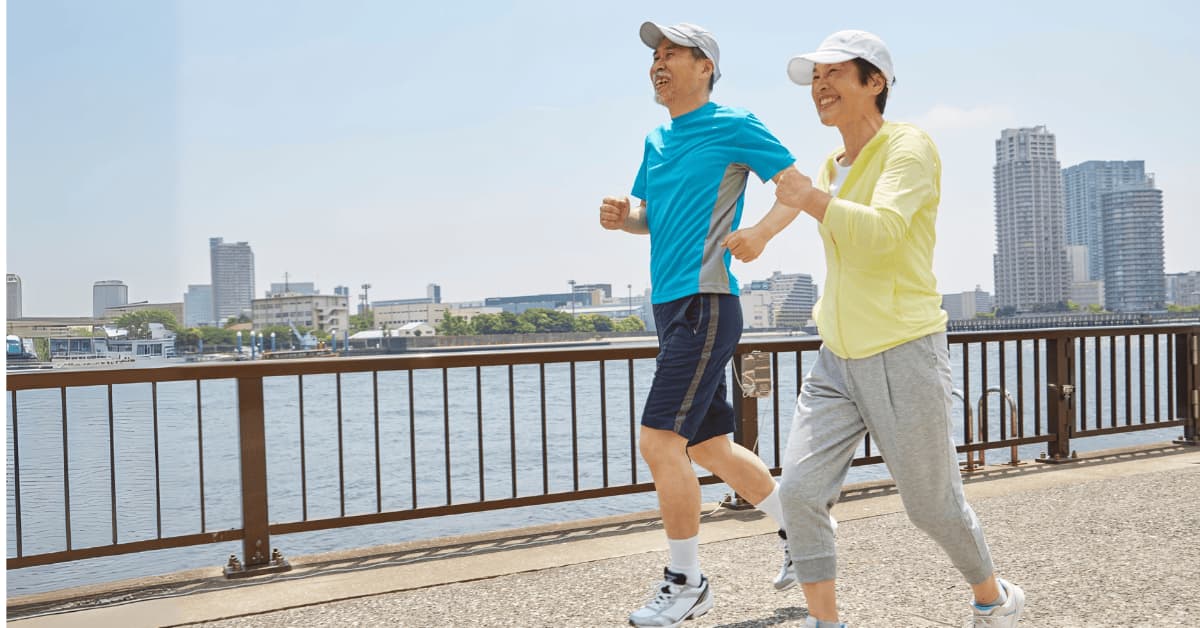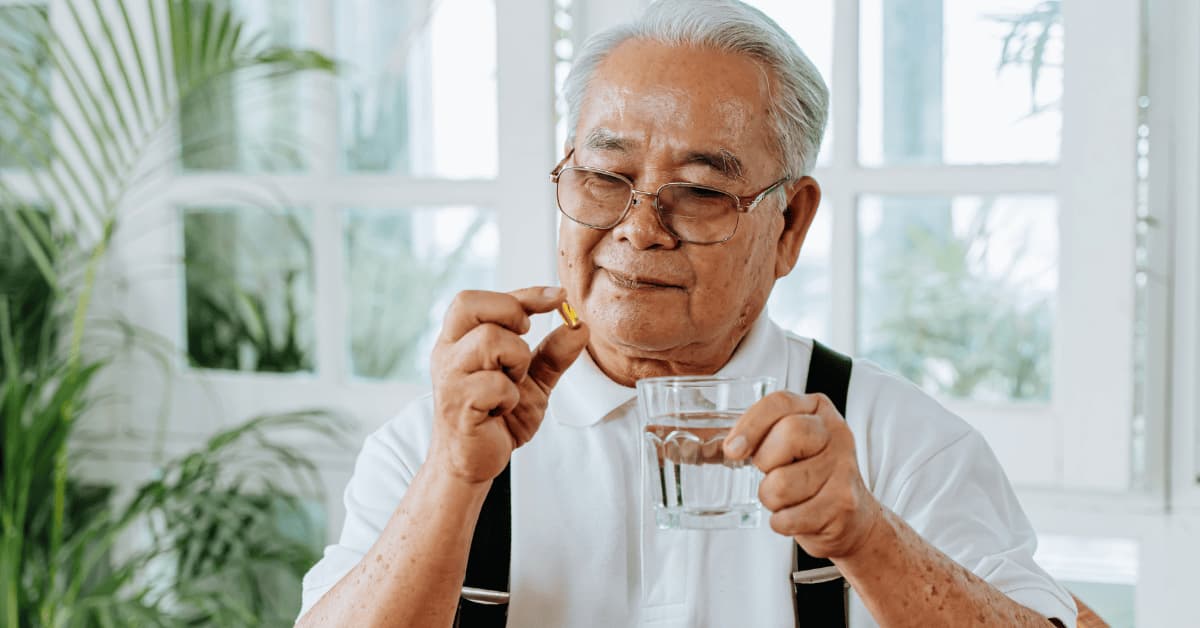
Osteoporosis is one of the major causes of bone fracture among the elderly. It is a condition that makes your bones weak and brittle, making them prone to fractures. But do you know what is concerning about this condition? It can develop without you knowing it. For this reason, it is considered a “silent disease.” Sa umpisa, walang masakit at walang sintomas, pero unti-unti na palang nanghihina ang iyong mga buto. Most of the time, it goes unnoticed at nade-detect na lamang ito kapag ang pasyente ay nabalian na ng buto.
When we hear of osteoporosis, we often associate it with aging, but what many people don’t know is that age is not the only reason for deteriorating bone health. It can also be a result of poor diet and hormonal changes, pero mayroon itong isang sanhi na hindi masyadong napag-uusapan: your thyroid. Isa sa mga risk factors ng osteoporosis ang hyperthyroidism, isang kondisyon kung saan sobra ang production ng iyong katawan ng thyroid hormones. However, even hypothyroidism (underactive thyroid) can increase your risk of developing osteoporosis, especially when it is overtreated.
How Does Your Thyroid Health Affect Your Bone Health?

The thyroid gland is a butterfly-shaped organ found at the front of the neck, and it is responsible for the production of the triiodothyronine (T3) and thyroxine (T4) hormones. These hormones play a major role in regulating our body’s metabolism, kaya kapag nagkaroon ng problema ang ating thyroid, marami itong naaapektuhan sa ating katawan, katulad na lamang ng ating mga buto.
To get a clearer understanding of how your thyroid health is linked to your bone health, let’s think of our bones like a building. As materials wear down over time, buildings are renovated to maintain their structural integrity. Our bones also undergo a similar process—old bone tissue is broken down (bone resorption) and replaced with a new one (bone formation). This cycle is called bone remodeling, and this helps maintain the strength of our bones.
Now, our T3 and T4 hormones help regulate the speed of that remodeling process. When your body is producing too much thyroid hormones (hyperthyroidism), bumibilis ang prosesong ito. The old bone is being broken down rapidly, at maaaring hindi na maka-keep up ang bone formation. As a result, more bone is lost than replaced, which increases the risk for osteoporosis. This link between hyperthyroidism and osteoporosis is well-established. Ngayon, paano naman nakakaapekto sa ating buto ang hypothyroidism?
How Are Hypothyroidism and Osteoporosis Connected?
Hypothyroidism is the opposite of hyperthyroidism. If you have hypothyroidism, your body does not produce enough thyroid hormones. So if hyperthyroidism speeds up our bodily functions, hypothyroidism slows them down. Unlike hyperthyroidism, hypothyroidism does not have a direct causal relationship with osteoporosis. It only becomes a problem when it is overtreated.
Hypothyroidism is treated by taking levothyroxine, a drug that is meant to replace the thyroid hormones that your body can no longer produce. However, kapag sumobra ang pag-inom mo nito, maaari itong mauwi sa mas mataas na thyroid hormone levels, leading to an overactive thyroid. At katulad ng hyperthyroidism, this can increase the risk of osteoporosis.
Mas Delikado Ba Ang Osteoporosis Sa May Hypothyroidism?
As mentioned above, hypothyroidism doesn’t directly cause osteoporosis. However, it can be dangerous if your hypothyroidism is not managed properly. Lifelong ang gamutan ng hypothyroidism, and over time, maaaring magbago ang dosage ng levothyroxine na kailangan ng katawan mo. Kapag sumobra ang pag-inom mo ng levothyroxine, whether by accident or because of self-medication, your thyroid hormone levels may become too high. This may result in drug-induced hyperthyroidism, and put you at greater risk for osteoporosis.
So if you have hypothyroidism and you are taking levothyroxine, mahalaga ang regular check-ups and monitoring ng thyroid hormone levels upang masiguro na accurate at updated ang dosage ng iyong gamot. If you start experiencing symptoms of an overactive thyroid such as palpitations, excessive sweating, diarrhea, vomiting, muscle cramps, shaking of the hands, and trouble sleeping, you should notify your healthcare provider.
Paano Maiiwasan Ang Osteoporosis Kung May Hypothyroidism?

Like most diseases, osteoporosis can be prevented, even if you have hypothyroidism. Here are some simple yet effective ways to protect your bones:
- If you are taking levothyroxine, make sure to take your medication correctly. Huwag basta-bastang i-adjust ang iyong gamot without consulting your physician. It’s also important to regularly check your thyroid hormone levels to ensure na hindi ka nasosobrahan sa gamot.
- Eat a bone-friendly diet. Incorporate foods rich in calcium, vitamin D, and protein into your diet to support your bone health.
- Iwasan ang bisyo tulad ng alak at sigarilyo. Smoking and drinking too much alcohol weakens your bones.
- Be active. Even a simple activity like walking can help build and strengthen your bones.
Todo Aruga For Your Bones and Thyroid

You can also protect your bones by taking supplements. Hatid sa inyo ng MedChoice ang todo aruga for your bones with Cholecalciferol + Calcium (Caltradin®). Caltradin® gives your body the calcium and vitamin D it needs to keep your bones strong and healthy, reducing the risk of osteoporosis. It is usually taken twice a day with food or as prescribed by your doctor.
For hypothyroidism, MedChoice offers Levothyroxine Sodium (Thydin®), which is available in the following dosage strengths: 12.5 mcg, 25 mcg, 50 mcg, 100 mcg, and 150 mcg. Levothyroxine dosage varies from person to person, as it depends on several factors such as your age, hormone levels, and symptoms. Taking too much levothyroxine can lead to complications, kaya magpatingin sa iyong doktor regularly.
Disclaimer: This information is not intended to substitute professional expertise. Ask your doctor or healthcare provider for diagnosis and treatment. References: Gillette, Hope. (2023). Why Thyroid Function Is So Important For Bone Health?. Retrieved June 12, 2025, from https://www.healthline.com/health/osteoporosis/osteoporosis-and-thyroid. Institute for Quality and Efficiency in Health Care. (2024). In brief: How does the thyroid gland work?. Retrieved June 12, 2025, from https://www.ncbi.nlm.nih.gov/books/NBK279388/. National Institute on Aging. (n.d.). Osteoporosis. Retrieved June 12, 2025, from https://www.nia.nih.gov/health/osteoporosis/osteoporosis. NHS. (n.d.). Levothyroxine. Retrieved June 12, 2025, from https://www.nhs.uk/medicines/levothyroxine/. Stang, Debra. (2024). Everything You Need To Know About Osteoporosis. Retrieved June 12, 2025, from https://www.healthline.com/health/osteoporosis. Wisner, Wendy (2023). Understanding the Connection Between Hypothyroidism and Osteoporosis. Retrieved June 12, 2025, from https://www.healthline.com/health/hypothyroidism-and-osteoporosis.
